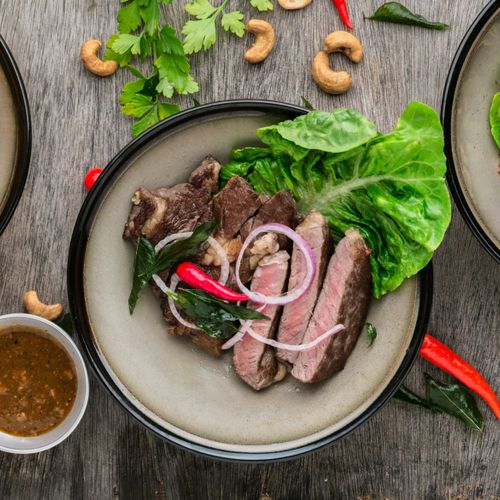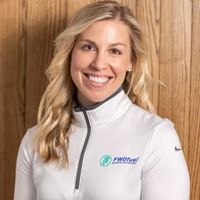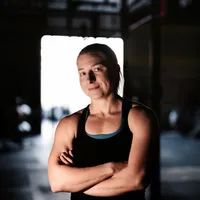I remember my first panic attack vividly. It happened during my senior year of high school, a time when you'd think my biggest worry would be about grades or college applications. Instead, I found myself lying on my twin bed, just watching TV, when suddenly, an overwhelming fear took over. It was one of those moments where you remember exactly where you were and what you were doing when it happened. My body flushed with heat, and I instinctively wrapped my arms around myself, trying to make sense of the chaos unfolding within me. It was a moment of pure, unadulterated fear, leaving me to wonder, "What the hell was that?!"
Following high school, these attacks didn't just persist; they intensified, becoming more frequent and leaving me in a constant state of fear and tension. It got to the point where I found myself crying often, overwhelmed by this relentless anxiety. After a particularly rough night, I turned to my grandmother for advice. With her background working for a prominent psychiatrist, she suggested I seek professional help. That brief visit to the doctor handed me a diagnosis of generalized anxiety disorder and a prescription for an antidepressant at the age of 18.
I was initially put on Effexor XR, a medication I remained on for 8 years, after having tried Paxil, Zoloft, and Wellbutrin without finding relief from my daily anxiety attacks. Despite the continuous use, the promise of alleviating my anxiety remained unfulfilled. I was cautioned that discontinuing the medication might only increase the frequency of the attacks, so I stayed on it. In an effort to enhance the effectiveness of Effexor, my doctors introduced "supportive" meds like Bupropion into my treatment plan. Yet, the challenges persisted. Unfortunately, this approach did little to alleviate my symptoms and introduced undesirable side effects such as weight gain and a lost libido. Faced with the realization that this medication was not only ineffective but also contributing to a decline in my quality of life, I switched to Celexa on my doctor's advice. He suggested a new medication might offer a different outcome, as Effexor no longer worked for me. After enduring another 8 years on Celexa, I recognized it wasn't helping me either. This prompted me to discontinue its use. I couldn't justify continuing to ingest what felt like poison to my body.
I lived under the illusion that my anxiety was "controlled" because of the medication. But in reality, the nervous energy never ceased. It was like a hum, vibrating through me from head to toe, dictating my every thought and action. I would wake up each morning questioning whether the anxiety was there, feeling it infiltrate every aspect of my life, leading me to doubt myself and trust in things I shouldn't. This constant state of fear and rumination convinced me of the narrative that those with mental health issues are inherently untrustworthy, even to themselves. I believed, wholeheartedly, that my life would be an endless battle with this condition.
But then, everything changed in 2018. I had been working in corporate America for years, in a company I once believed I'd retire from. However, the environment turned toxic, and despite forming incredible relationships, I knew I had to leave. Leaving a job that had become my second home, despite its challenging environment, left me shattered. It was my breaking point, leading to what I now call "the breakdown of 2018."
This breakdown was the catalyst for my awakening. I started questioning everything, especially how I could constantly feel so dark and heavy while on medication that was supposed to prevent exactly that. Discovering Dr. Kelly Brogan's "A Mind of Your Own" marked a significant moment of change. Here was a voice from the medical field challenging the very foundation of what I had been told about mental health and pharmaceuticals. It was empowering to learn that I didn't have to accept the mental health narrative I had been sold, that I wasn't doomed to struggle forever, and that I could trust myself.
In 2019, driven by a desire for change and inspired by the success of a close friend, my husband and I started experimenting with the ketogenic diet. This journey eventually led us to adopt a carnivore, or animal-based, diet. The ketogenic diet, known for its high-fat, moderate-protein, and low-carbohydrate approach, pushes the body into ketosis, a metabolic state where fat becomes the primary source of energy. This shift not only improved my energy levels but also marked the beginning of significant health improvements across the board.
Within 4.5 months on the ketogenic diet, I was able to discontinue my antidepressants, a milestone that underscored the real impact of dietary changes on my mental health. However, I experienced some challenges with constipation and bloating due to the high vegetable intake. The transition to a carnivore diet addressed these issues, leading to daily, effortless bowel movements and eliminating the bloating entirely.
Witnessing the health challenges of those around me, including a coworker's young son diagnosed with neuroblastoma and another with bone cancer, was a wake-up call that made me realize my approach to health needed to change. The motivation for these changes came from a desire to reduce inflammation in my body, rather than lose weight.
Another critical aspect of my healing journey involved addressing environmental factors like blue light exposure. I had grown used to feeling muscle fatigue across my brow line, which felt like a cramp and affected my vision. Then I discovered the benefits of wearing red-lensed glasses at work. The difference was night and day—removing the glasses brought the discomfort back immediately, while wearing them always offered relief. This personal experiment led me to dive deeper into the study of blue light toxicity, making it a key component of my holistic approach to health.
Combining the ketogenic and carnivore diets with strategic lifestyle adjustments like sun exposure and minimizing blue light has not only granted me newfound vitality but also liberated me from conditions that once seemed unbeatable.
What started as a small seed of hope has blossomed into an extraordinary life far exceeding my expectations. Anxiety no longer interrupts my life, the back pain that threatened surgery is gone, and my body now enjoys the rhythm of daily bowel movements, alongside boundless energy and radiant skin. Adopting these dietary and lifestyle habits has enhanced my health in ways I couldn't have predicted - It's a testament to the effectiveness of nutritional and environmental interventions for true well-being.
In 2022, I became a certified Nutritional Therapy Practitioner and founded Neurotic Farmer. My mission was clear: to offer hope to those let down by conventional medicine. Leaving corporate America has allowed me to fully commit to this cause. My approach with clients mirrors the journey that saved me—leveraging the power of nutrition, sunlight, nature, and breathwork. These tools, widely accessible and effective, helped me reclaim my life, and now I'm dedicated to helping others do the same.













